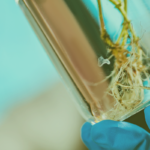

"Our research is focused on the understanding how plants regulate translation to better cope with the environment"
How do plant cells regulate their protein synthesis to better cope with the environment? From individual cell types to organisms, we try to understand the role of translation regulation in the plant´s adaptive responses.
Protein synthesis, or translation, is a basic requirement for life and an integral component of the Central Dogma of molecular biology. The chances of an organism to survive in an ever-changing environment greatly rely on the proteins available and on its capacity to synthesize the right proteins at the right time. As sessile organisms, this necessity is even more acute in plants. Translation is also the most energy-demanding process in the cell. For these reasons, the process of protein synthesis must be finely controlled and synchronized with all cues, internal and external, that the plant receives. However, very little is yet known about the selective translation of specific mRNAs and its regulation

Tomato and Nicotiana |
The research in our group aims at understanding how plants regulate their translation to properly develop and respond to the environment. To address this question, we are combining molecular biology tools as well as translation-specific techniques, such as TRAP-seq, polysome profiles, and Ribo-seq.
We are currently focused on two main lines. On the one hand, and using Arabidopsis as model, decipher the role that the translation machinery, ribosomal proteins and translation factors, plays in gene-specific translation regulation. On the other hand, using tomato and Nicotiana, characterize the translational landscape of the plant-virus interaction.




